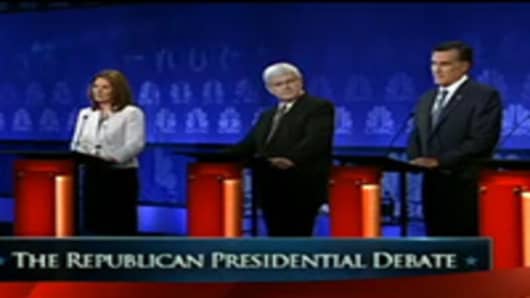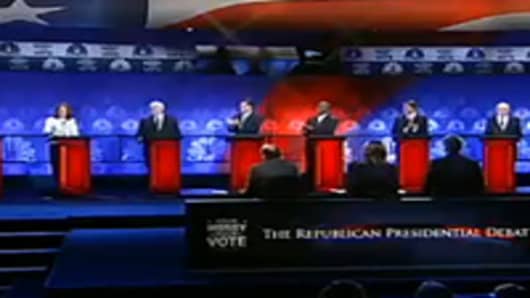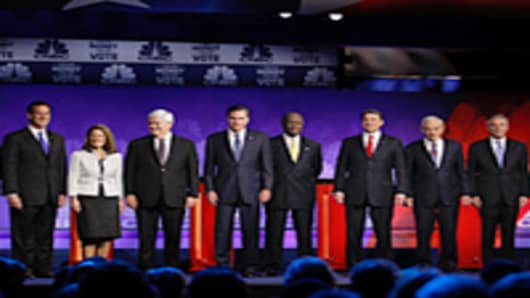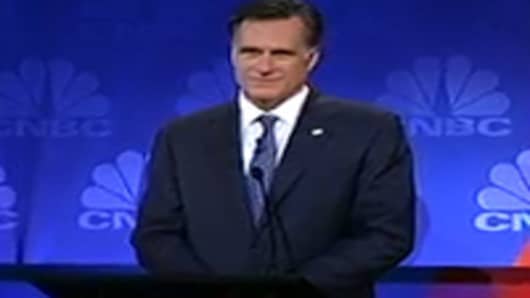Perry, too, has proposed a flat tax, but his plan has met with skeptics over the option for taxpayers to choose his plan or stick with the old tax code.
One of the other main topics is how to cope with the nation's $15 trillion debt and $1.3 trillion debt while trying to help an economy that grew at just 2 percent in the last quarter.
Raising taxes is anathema, though, to the Republican base, so the candidates have tried to sell their tax plans as both growth-friendly and less burdensome on those suffering most during the downturn.
"We're looking for a person to win this nomination and show a consolidated, reliable resolve to reduce and focus on a small government, on the essential task of government while engaging in the policies that encourage growth in the private sector," Dick Armey, former House Republican majority leader and tea party organizer, told CNBC.
Voters have been fickle about whom they see as most able to accomplish those goals.
Polling in recent weeks showed a two-man matchup between Cain and Romney.
Perry's position has been the most volatile.
He declared his candidacy on Aug. 13 and vaulted to the status of immediate front-runner, but has seen his fortunes slip during Cain's emergence. Cain's primary weakness has been debates just such as these, where he has had difficulty displaying the vision and charm he uses to sway crowds along the campaign trail.
The candidates also teed off on China, with Romney blasting "cheaters like China" and both he and Gingrich saying the U.S. needs to impose penalties even if it risks a trade way.
Huntsman — the former ambassador to China under Obama — said that would be a mistake.
"We've had a 40-year relationship with China. It is a troublesome and problematic relationship, very complicated," he said. "You can throw out applause lines and say that you're going to slap on tariffs. That doesn't work."







